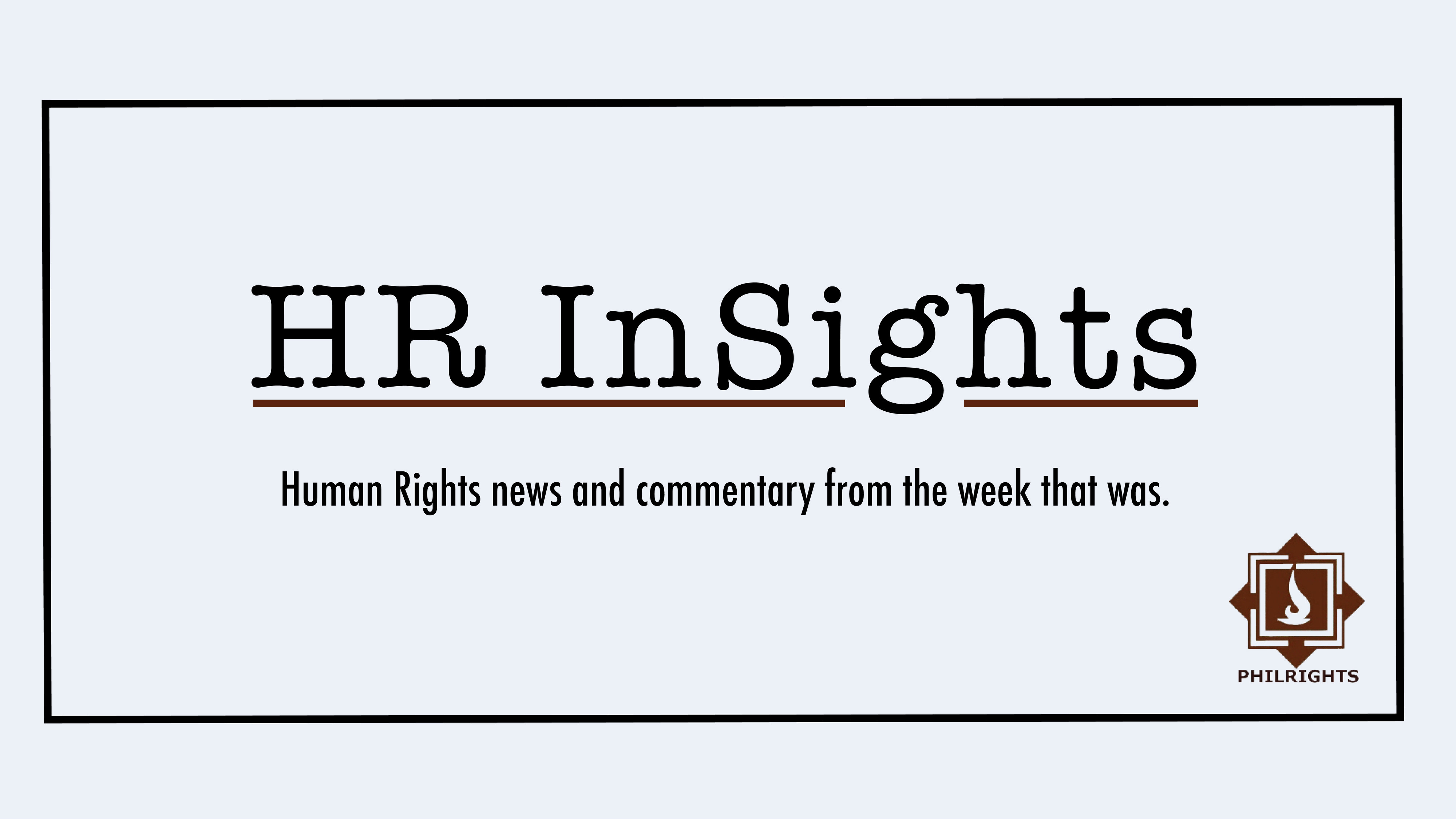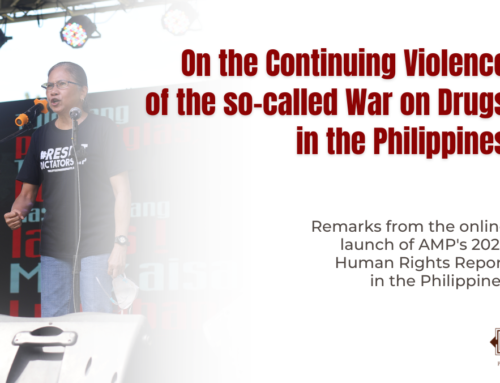By PhilRights Staff
Welcome to HR Insights, a weekly roundup of human rights news in the Philippines. This week…
SEC revokes Rappler’s license; draws widespread flak
In what is widely seen as a nakedly political maneuver, the Securities and Exchange Commission revoked Rappler’s license to operate on grounds of unconstitutionality, owing to Rappler’s issuing of Philippine Depositary Receipts (PDR) to Omidyar Network, a foreign investment firm and foundation.
While Rappler swiftly moves to appeal, the decision drew flak from mass media organizations, human rights groups, opposition politicians and the public.
The Philippine Star quotes a statement issued by the Foreign Correspondents Association of the Philippines (FOCAP), saying “Journalists must be able to work independently in an environment free from intimidation and harassment. An assault against journalists is an assault against democracy.”
The PhilStar report also included a statement from the Commission of Human Rights (CHR) spokesperson Atty. Jacqueline de Guia, calling the move “deeply concerning in the context of press freedom.”
Amnesty International’s Director of Southeast Asia and the Pacific James Gomez also weighed in, calling the SEC ruling a “politically motivated decision” and the “latest attempt to go after anyone who dares to criticize the government.”
One of the most scathing condemnations came from the New York Times. In a January 16 editorial, the paper of record calls out Duterte’s “viciousness” for going after independent media organizations like Rappler. While highlighting the primacy of demanding accountability from Duterte and his government’s “blatant violations of human rights,” the editorial also emphasizes the critical role of a free press in “the ability of a democracy to repair the damage caused by bad leaders.”
Fact-finding Mission: Killing of 8 Lumads a Massacre
The deaths of eight Lumads in a December 3 “clash” with military forces in Lake Sebu, South Cotabato was a massacre, says a fact-finding mission composed of human rights groups and Philippine Church groups.
A Union of Catholic Asian News report cites Dr. Benito Molino, a forensic expert who was part of the independent investigating team, as saying that “Based on physical evidence…it appears that there was no clash.”
Dr. Molino also reported that at least “300 empty and live shells from M14 and M16 rifles were recovered in various sites.”
The targets of the operation, the military claims, are communist guerrillas. Belying this claim is Lita Wali, sister of tribal leader Victor Danyan who was killed in the supposed clash. Wali insists that there was no exchange of gunfire, and that her brother was targeted for being vocal in a land reclaiming issue that has existed since 2006.
Tokhang will be transparent, claims PNP
In a media blitz meant to reassure a wary public that the Philippine National Police (PNP) will not repeat its bloody record in anti-illegal drug operations, PNP Directorate for Operations Chief Director Camilo Cascolan outlined measures to make Oplan Tokhang more transparent.
The Philippine Star reports that among the PNP’s promised changes are new policies requiring the wearing of body cameras during anti-drug operations, vetting and regular performance reviews of members of drug enforcement units, and having representatives from barangay officials, educational institutions, religious groups, and the media during operations.
Understandably, the Commission on Human Rights (CHR) remains concerned about the resumption of anti-illegal drug operations by the PNP, given the thousands of deaths recorded in the previous 16 months of anti-drug operations. CHR spokesperson Atty. Jacqueline de Guia also noted that the intended purpose of Tokhang, which is rehabilitation for identified drug dependents, has not been carried out.
An Inquirer report, meanwhile quotes Caloocan Bishop Pablo Virgilio David, who expressed worry about the return of the program. Bishop David further notes that in Caloocan, his diocese, at least 20 more people were killed even during the supposed suspension of Oplan Tokhang in the last quarter of 2017.
Must Read: Questioning the government’s “Siege of Marawi” narrative
Writing for Bulatlat.com, Mindanao studies scholar Gill H. Boehringer of Macquarie University School of Law raises questions about the official narrative peddled by the Philippine government on the five-month long “Siege of Marawi.”
Boehringer points to existing questions about the accuracy in the reported number of civilian deaths and human rights abuses committed both by the military and the Maute group. He also finds the “comprehensive” destruction of the city as suspect, saying that Maranaws have claimed that that level of escalation was unnecessary.
The piece is comprehensive and provides much needed context and a clear call for an in-depth review of official accounts against stories from the ground.





